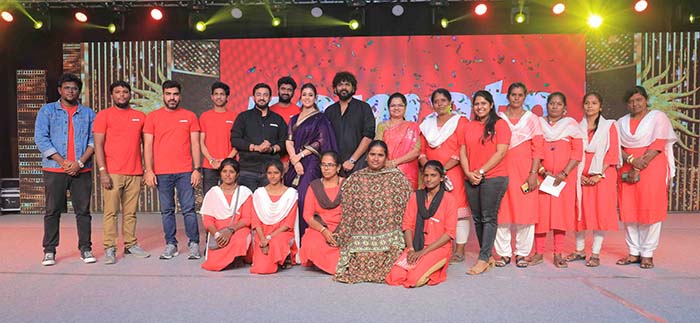NE HEALTH BUREAU
CHENNAI, JAN 12
Zomato, India’s online food ordering and delivery platform, on Sunday announced it has collaborated with Femi9, to encourage healthy menstrual hygiene habits pursuant to which Zomato shall be providing free sanitary napkins for female delivery partners in Tamil Nadu. This initiative, unveiled at Femi9 Mega Celebration Event 2, aims to enhance the health and well-being of women in the gig workforce by ensuring consistent access to safe and eco-friendly menstrual products.
Under this initiative, Zomato onboarded female delivery partners will receive eco-friendly sanitary napkins, along with a leaflet titled “Be a Cramp-ion,” which includes health tips to support and educate them during menstruation.
- The initiative aims to ensure access to eco-friendly menstrual products for women in the gig workforce
- As of November 2024, Zomato had over 2,500 active female delivery partners operating across 250+ cities
- Zomato has also introduced several initiatives to support their well-being, including introducing a Kurta as an option, providing shorter-distance delivery options, instituting two paid period rest days per month, and including maternity cover in the insurance plan.
“At Zomato, we are committed to creating a more inclusive and empowering environment for women across, especially in our delivery partner fleet. Initiatives like these reflect our holistic approach to supporting and inspiring more women to join the gig workforce. This is another step in our ongoing journey to foster key collaborations that address specific needs of women,” said Anjalli Ravi Kumar, Chief Sustainability Officer, Zomato
“Our aim is to make sure our sustainable products reach every woman across the nation and we are sure that this collaboration with Zomato is a great start for that,” said Dr. Gomathi, Founder, Femi9
As of November 2024, Zomato had over 2,500 active female delivery partners operating across 250+ cities. Zomato has also introduced several initiatives to support their well-being, including introducing a Kurta as an option, providing shorter-distance delivery options, instituting two paid period rest days per month, and including maternity cover in the insurance plan.












